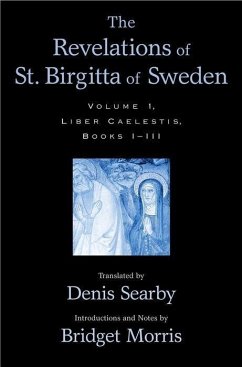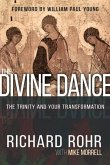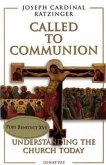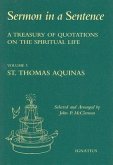Interest in Birgitta's revelations has grown over the past decade. Historians and theologians draw on them for insights into late medieval spirituality, artistic imagery, political struggles, and social life. Scholars of literature study them to gain knowledge of rhetorical strategies employed in late medieval texts by women. Philologists analyze them to enhance understanding of the historical development of Latin and medieval Swedish. Increasingly, Birgitta is also admired and studied as a powerful female voice and prophet of reform. The publication of this translation will make this important text available to a much wider cross-section of scholars and students, and to those who are interested in her spiritual insights. The editors will provide an extensive introduction outlining the major characteristics of Brigitta's spirituality, her life and work, her style and use of sources, and the main features of her theology. The subsequent volumes are projected to appear at two-year intervals.
St. Birgitta of Sweden (1303-1373, canonized 1391) was one of the most charismatic and influential female visionaries of the later Middle Ages. Altogether, she received some 700 revelations, dealing with subjects ranging from meditations on the human condition, domestic affairs in Sweden, and ecclesiastical matters in Rome, to revelations in praise of the Incarnation and devotion to the Virgin. Her Revelations, collected and ordered by her confessors, circulated widely throughout Europe and long after her death. Many eminent individuals, including Cardinal Juan Torquemada, Jean Gerson, and Martin Luther, read and commented on her writings, which influenced the spiritual lives of countless individuals. Birgitta was also the founder of a new monastic order, which still exists today. She is the patron saint of Sweden, and in 2000 was declared (with Catherine of Siena and Edith Stein) co-patroness of Europe. Birgitta's Revelations present her as a commanding and dauntless visionary who develops a contemplative mysticism that is always interwoven with social engagement and a commitment to the salvation of the world. Their varied style is dominated by frequent juxtapositions of memorable images and allegories that illustrate her fierce and fertile imagination, her sharp powers of observation and understanding, and her passionate and receptive storytelling powers. This is the first of four projected volumes offering the first complete translation of the Revelations into English since the Middle Ages. This volume, which covers Books I-III of the Revelations, contains some of her earliest visions, dating from the 1340s. Book I addresses some of the major themes of herspirituality, and Books II and III contain a sustained critique of the classes of knights and bishops. The editors provide an extensive introduction outlining the major characteristics of Birgitta's spirituality, her life and work, her style and use of sources, and the main fe
St. Birgitta of Sweden (1303-1373, canonized 1391) was one of the most charismatic and influential female visionaries of the later Middle Ages. Altogether, she received some 700 revelations, dealing with subjects ranging from meditations on the human condition, domestic affairs in Sweden, and ecclesiastical matters in Rome, to revelations in praise of the Incarnation and devotion to the Virgin. Her Revelations, collected and ordered by her confessors, circulated widely throughout Europe and long after her death. Many eminent individuals, including Cardinal Juan Torquemada, Jean Gerson, and Martin Luther, read and commented on her writings, which influenced the spiritual lives of countless individuals. Birgitta was also the founder of a new monastic order, which still exists today. She is the patron saint of Sweden, and in 2000 was declared (with Catherine of Siena and Edith Stein) co-patroness of Europe. Birgitta's Revelations present her as a commanding and dauntless visionary who develops a contemplative mysticism that is always interwoven with social engagement and a commitment to the salvation of the world. Their varied style is dominated by frequent juxtapositions of memorable images and allegories that illustrate her fierce and fertile imagination, her sharp powers of observation and understanding, and her passionate and receptive storytelling powers. This is the first of four projected volumes offering the first complete translation of the Revelations into English since the Middle Ages. This volume, which covers Books I-III of the Revelations, contains some of her earliest visions, dating from the 1340s. Book I addresses some of the major themes of herspirituality, and Books II and III contain a sustained critique of the classes of knights and bishops. The editors provide an extensive introduction outlining the major characteristics of Birgitta's spirituality, her life and work, her style and use of sources, and the main fe








